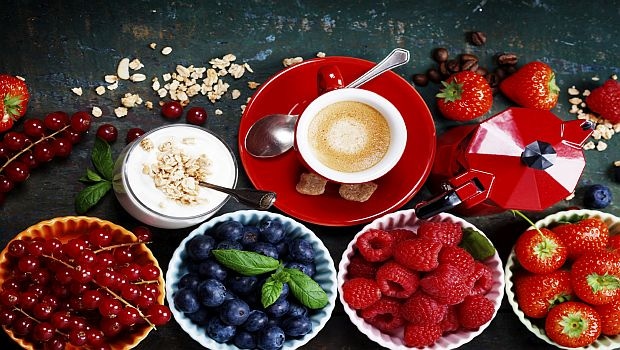Strawberries Reduce Risk of Heart Disease, Insulin Resistance
Two studies, both published in FASEB, linked strawberries to better health—one demonstrated the role strawberries play in improving insulin sensitivity in people with insulin resistance while the second study showed strawberries reduce cholesterol and boost levels of glutathoione, an antioxidant biomarker associated with reduced risk of chronic disease.
April 14, 2015

Two studies, both published in FASEB, linked strawberries to better health—one demonstrated the role strawberries play in improving insulin sensitivity in people with insulin resistance while the second study showed strawberries reduce cholesterol and boost levels of glutathoione, an antioxidant biomarker associated with reduced risk of chronic disease.
In the first study, the effects of strawberries, which are a major dietary source of anthocyanins, were assessed on acute insulin and glucose responses in individuals with insulin resistance (2015; 29(1):259.3). In the randomized four-arm crossover study, 23 obese adults consumed beverages containing freeze-dried strawberry powder (FDS) at four levels: 0, 10, 20 or 40 g of FDS. The FDS beverages were fiber controlled and served with a standard meal with blood collected before and six hours after the meal was eaten on four occasions. Mean six-hour insulin was significantly lowered after consuming the 40-g FDS beverage/meal compared to all other beverages. No differences were observed in six-hour glucose responses, although the magnitude of increase from baseline was significantly lower after the 40-g FDS beverage compared to other beverages. In adults with higher fasting insulin and greater insulin resistance, significant reductions in peak post-meal insulin was apparent with 20- and 40-g FDS beverages, whereas in those with a lesser degree of insulin resistance the 40-g FDS reduced peak post-meal insulin. These data support the role strawberries play in improving insulin sensitivity in people with insulin resistance.
In the second study, researchers examined the hypothesis that FDS improve antioxidant biomarkers in adults with abdominal adiposity and elevated serum lipids (2015;29(1):922.7). In the randomized dose-response controlled trial, 60 volunteers were assigned to either: a 25 g/ FDS (LD-FDS), low-dose control (LD-C), 50 g/d FDS (HD-FDS) or high-dose control (HD-C) beverage for 12 weeks. Control beverages were matched for calories and total fiber. At 12 weeks, glutathione levels were higher in HD-FDS vs. LD-FDS as well as vs. HD-C, and catalase activity was lower in HD-FDS vs. baseline. No differences were noted in serum trace elements following FDS intervention. The researchers concluded dietary strawberries, especially at high doses, may selectively modulate antioxidant biomarkers that influence risk factors of chronic diseases.
This has a lot of implications for food and beverage products. There has been a push for nutritional bars to focus more on heart health and this study supports strawberries’ role in maintaining a healthy heart. And whether you’re building better-for-you breakfasts such as cereal with high-fiber and freeze-dried fruits or introducing a new line of functional foods and beverages or a healthy dessert, strawberries can be a tasty and functional addition to your product.
You May Also Like




.png?width=800&auto=webp&quality=80&disable=upscale)